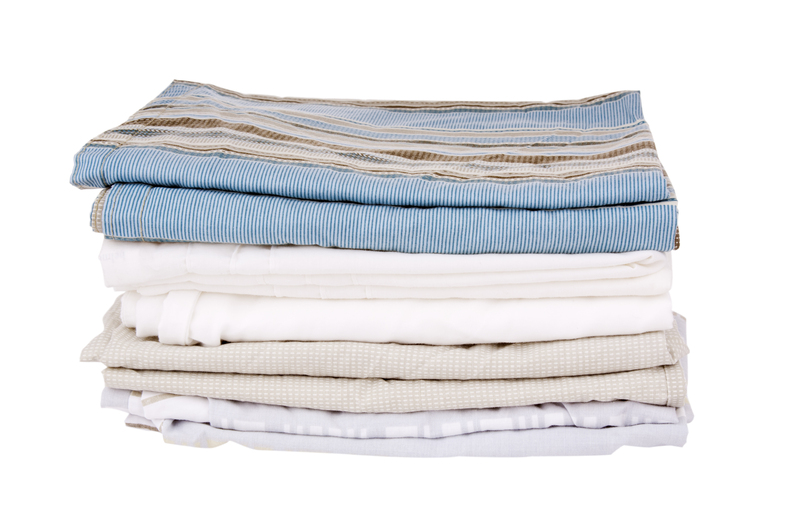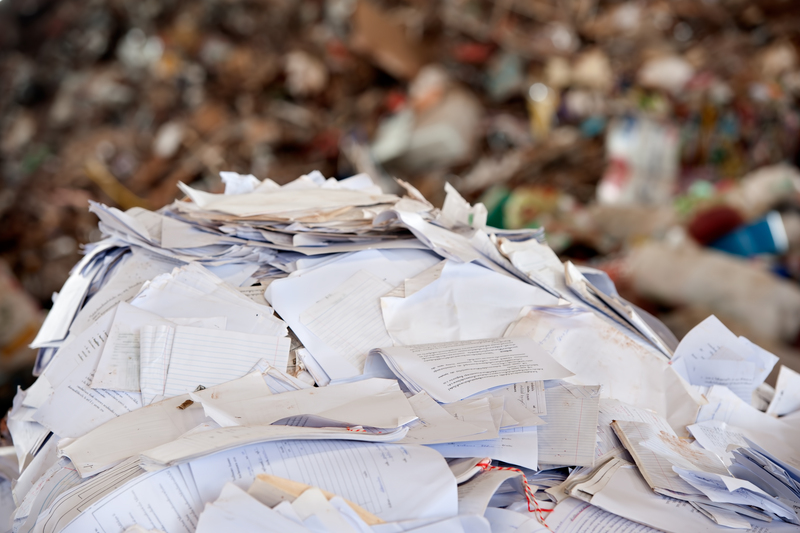Resourceful Tips for a Minimal-Waste Home
Are you seeking effective strategies to transform your lifestyle and contribute to a cleaner planet? Embracing a minimal-waste home can make a tremendous difference, not only for the environment but also for your family's well-being and budget. Living with less waste doesn't have to be daunting--with a few adjustments and resourceful practices, you can reduce your household's environmental footprint while fostering simplicity and sustainability.
This in-depth guide offers resourceful minimal-waste home tips that are practical, easy to implement, and designed for modern living. Whether you're a beginner or already on your zero-waste journey, these suggestions will empower you to make a lasting impact--one small step at a time.
Why Embrace a Minimal-Waste Home?
Adopting a minimal-waste lifestyle is more than just a trend; it's a conscious choice that aligns with global efforts to reduce environmental pollution, conserve valuable resources, and foster healthier communities. Here are a few compelling benefits:
- Environmental Protection: Lowering household waste reduces landfill overload and curbs carbon emissions.
- Cost Savings: Reducing single-use products and food waste often translates to spending less money.
- Healthier Living: Minimal-waste living means fewer toxins and chemicals from plastics and processed goods.
- Clutter-Free Homes: Less "stuff" leads to a more organized, serene living environment.
Now, let's dive deep into actionable strategies for making your home resourcefully minimal-waste!

Start with a Minimal-Waste Mindset
Changing habits takes time, so begin by cultivating awareness around your consumption patterns. A minimal-waste home is rooted in mindful buying and conscious usage.
- Assess Your Waste: Spend a week tracking what you throw away most often. Identify patterns--are you tossing food, packaging, or disposable containers?
- Set Realistic Goals: Start with small targets like reducing single-use items or switching to reusable bags, then gradually expand your efforts.
- Get the Family Involved: Minimal-waste living is more effective when everyone is on board. Hold brief family meetings to discuss shared goals and celebrate progress.
Remember, perfection isn't the goal--progress and persistence are what matter most!
Resourceful Kitchen Tips for Minimal-Waste Living
1. Smart Grocery Shopping
- Plan Meals Ahead: Make a weekly meal plan and grocery list. This reduces overbuying and prevents food spoilage.
- Shop in Bulk: Purchase staples like grains, pasta, and legumes from bulk bins using reusable containers or bags.
- Choose Local and Seasonal: Support farmer's markets and choose produce that's in season to minimize packaging and transport impact.
- Avoid Packaged Goods: Opt for loose produce and items with minimal or compostable wrapping.
2. Reduce Food Waste Resourcefully
- Proper Storage: Store fruits and vegetables correctly to maintain freshness and avoid spoilage. Use glass containers or wax wraps instead of plastic.
- Creative Leftovers: Transform leftover meals into new dishes. For example, use vegetable scraps for soups or stir-fries.
- Practice FIFO: Follow the "First In, First Out" rule to use older food before newer purchases.
3. Minimal-Waste Kitchen Swaps
- Compost Food Scraps: Set up a compost bin or check if your area offers composting services.
- Use Cloths and Towels: Replace paper towels with washable cloths for cleaning and spills.
- Switch to Refillable Containers: Ditch single-use condiment bottles for refillable glass or stainless steel options.
- Say No to Plastic: Choose bamboo or metal utensils, and switch to silicone baking mats instead of parchment paper.
Minimal-Waste Bathroom Strategies
1. Sustainable Personal Care
- Refillable Products: Use refill stations or bulk shops for soap, shampoo, and conditioner.
- Bar Soaps: Switch to package-free bar soaps and solid shampoos/conditioners.
- Eco-Friendly Alternatives: Try bamboo toothbrushes, reusable razors, and washable makeup pads.
2. Paper and Plastic Reduction
- Bidet Attachments: Install a bidet to drastically cut down on toilet paper usage.
- Reusable Wipes: Use cloth wipes for cleaning instead of disposable wet wipes.
- Bulk Buy Toilet Paper: Opt for brands with recycled content and plastic-free packaging.
Resourceful Minimal-Waste Cleaning Tips
1. DIY Cleaning Solutions
- Homemade Cleaners: Make all-purpose cleaners with vinegar, baking soda, and essential oils for a non-toxic, waste-free clean.
- Refillable Bottles: Invest in glass spray bottles that can be refilled to cut down on plastic waste.
2. Responsible Cleaning Tools
- Natural Brushes: Swap plastic scrubbers for wood and plant-fiber brushes.
- Repurpose Old Textiles: Turn old t-shirts and towels into cleaning rags rather than discarding them.
Minimal-Waste Practices for the Laundry Room
1. Eco-Friendly Laundry Habits
- Full Loads Only: Wait for a full load to maximize each wash cycle and conserve water and energy.
- Cold Water Washing: Most clothes get just as clean with cold water, saving energy.
- Air Dry When Possible: Use a clothesline or drying rack to reduce dryer electricity usage.
2. Sustainable Laundry Products
- Choose Concentrated or Powdered Detergent: These often come in cardboard boxes rather than plastic jugs.
- Laundry Strips or Pods: Opt for package-free strips that dissolve in the wash.
- Eco Dryer Balls: Replace single-use dryer sheets with reusable wool balls.
Minimal-Waste Shopping and Lifestyle Choices
1. Reusable By Default
- Carry Reusable Bags: Keep canvas totes and produce sacks handy for groceries and errands.
- Bring Refillables: Use refillable water bottles, travel mugs, and food containers for takeout or bulk shopping.
- Say No to Freebies: Politely refuse promotional giveaways that you don't truly need.
2. Opt for Secondhand First
- Thrift and Swap: Before buying new, check thrift stores, online marketplaces, or join local swap groups for clothing, furniture, and household goods.
- Repair and Mend: Extend the life of possessions by mending clothes, repairing appliances, or repurposing items creatively.
Organizing for a Minimal-Waste Household
1. Declutter Sustainably
- Sort Responsibly: When decluttering, separate items for donating, recycling, and repurposing, not just throwing away.
- Hold a Swap Party: Trade unwanted items with friends or neighbors instead of sending them to a landfill.
2. Effective Storage Solutions
- Glass Jars and Containers: Store bulk foods, snacks, and leftovers in glass rather than plastic to reduce waste and keep food fresher.
- Label Everything: Properly labeled and organized storage prevents forgotten foods or duplicate purchases.
Reduce, Reuse, Recycle: Master the Minimal-Waste Mindset
The classic "reduce, reuse, recycle" mantra remains as relevant as ever. Here's how to make it a reality in everyday life:
- Reduce: Buy only what you need. Quality over quantity avoids waste and saves resources.
- Reuse: Find new purposes for containers, jars, bags, and packaging.
- Recycle: Learn your local recycling guidelines to sort waste appropriately.
The Fourth "R:" Refuse
Go beyond the basics by refusing unnecessary items. Think before you accept freebies, flyers, or samples. Politely decline, or ask if an electronic version is available instead of paper. This active choice is fundamental to a minimal-waste lifestyle.
Family & Community Engagement
1. Get Your Family Excited
- Make it Fun: Turn waste-reduction into a family challenge. Track your weekly trash output and reward everyone for waste-conscious choices.
- Share Responsibility: Assign simple tasks to kids--like rinsing recyclables or collecting cloth napkins after meals.
2. Build Community Connections
- Join Local Groups: Many neighborhoods have minimal-waste, sustainability, or "buy nothing" groups that host swaps or share resources.
- Advocate for Better Services: Encourage local government for improved recycling, composting, and refill options in your area.
Common Challenges on the Minimal-Waste Journey (And How to Overcome Them)
- Limited Access to Bulk or Refill Stores: If you don't have access to local zero-waste shops, prioritize reducing packaging by buying larger containers or supporting brands with compostable or recyclable packaging.
- Family Resistance: Start slow, prove how easy (and beneficial) certain swaps are, and celebrate every small win.
- Time Constraints: Many minimal-waste swaps (like cloth napkins or DIY cleaners) ultimately save time in the long run. Set up systems that integrate smoothly into your existing routines.

Minimal-Waste Home: Long-Term Benefits
- Lower Household Costs: Reducing waste means buying fewer products, saving money.
- Healthier Spaces: Minimal-waste habits often translate to less exposure to plastics and chemicals.
- Greater Appreciation: You'll cherish what you own more, and find satisfaction in living in a clutter-free, efficient home.
- Environmental Stewardship: Every action contributes to a larger movement toward global sustainability and conservation.
Final Thoughts: Starting Your Minimal-Waste Home Journey
Remember, every step toward minimizing waste matters, no matter how small. By integrating a few of these resourceful tips for a minimal-waste home into your daily life, you're contributing to a greener planet and a more fulfilling lifestyle.
- Start with one room or habit at a time.
- Celebrate incremental progress--success is made up of small, consistent actions.
- Share your journey to inspire others.
Ready to create your own sustainable, minimal-waste home? Use these actionable insights and resourceful strategies to reinvent your routine and embrace a brighter, cleaner future!
For more eco-friendly living inspiration, stay connected and keep reducing, reusing, and recycling--your home and the planet will thank you.